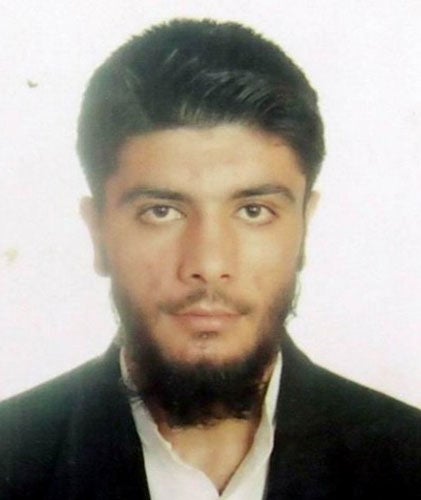'Al-Qa'ida operative' must not be deported to Pakistan, says judge

Your support helps us to tell the story
From reproductive rights to climate change to Big Tech, The Independent is on the ground when the story is developing. Whether it's investigating the financials of Elon Musk's pro-Trump PAC or producing our latest documentary, 'The A Word', which shines a light on the American women fighting for reproductive rights, we know how important it is to parse out the facts from the messaging.
At such a critical moment in US history, we need reporters on the ground. Your donation allows us to keep sending journalists to speak to both sides of the story.
The Independent is trusted by Americans across the entire political spectrum. And unlike many other quality news outlets, we choose not to lock Americans out of our reporting and analysis with paywalls. We believe quality journalism should be available to everyone, paid for by those who can afford it.
Your support makes all the difference.Two men considered to be a serious threat to national security including one described as a fully-fledged "al-Qa'ida operative" were told by a judge yesterday that they could stay in Britain because it was too dangerous to deport them back to Pakistan.
Abid Naseer, 24, was the alleged ringleader of a plot to attack Manchester's Trafford Centre and other targets last year identified by anti-terrorist detectives who intercepted a series of e-mails in which it was claimed he used women's names as code for bomb-making equipment.
But a partially closed hearing of the Special Immigration Appeals Commission (SIAC) in London found that he and fellow Pakistani Ahmed Faraz Khan, 26, whom the judge said was a "willing participant", could not be returned to their native country because it breached human rights.
They were among 12 men arrested last year in raids across the north of England when police claimed to be acting to thwart a "mass casualty" terrorist attack. However no explosives were ever discovered and no one was charged after Operation Pathway had to be hurriedly brought forward because of a security blunder by the Metropolitan Police Assistant Commissioner, Bob Quick.
Mr Justice Mitting, in a written ruling for the tribunal, said: "For the reasons stated, we are satisfied that Naseer was an al-Qa'ida operative who posed and still poses a serious threat to the national security of the UK and that... it is conducive to the public good that he should be deported." But he concluded that the abuse of legal and human rights in Pakistan meant he could not send back Nazeer and Faraz Khan. "There is a long and well-documented history of disappearances, illegal detention and of the torture and ill-treatment of those detained usually to produce information, a confession or compliance," he said.
A third man, Shoaib Khan, 31, who was appealing against deportation proceedings from Pakistan also won his appeal after the tribunal ruled he was a genuine student with no links to the plot. He will be allowed to apply to return to Britain. Two other men, Tariq Ur Rehman, 39, and Abdul Wahab Khan, 27, who returned voluntarily to Pakistan, were said to be "knowing participants" and lost their appeals.
The tribunal rejected Naseer's claims that he was seeking a wife in the emails as "utterly implausible". One message, sent shortly before the raids in April last year, referred to an agreement to "conduct the nikah [wedding] after 15th and before 20th of this month". British intelligence officers said that was the date of the planned attack.
The Home Secretary, Theresa May, said she was "disappointed" by the ruling but would not contest the decision. Her party has promised to repeal the Human Rights Act which incorporates the European Convention on Human Rights which the men used to argue their appeal on the grounds that they faced possible torture if returned.
She said: "As the court agreed, they are a security risk to the UK. We are now taking all possible measures to ensure they do not engage in terrorist activity." Naseer is in prison under immigration powers while Faraz Khan is on bail at a secret location and having his movements restricted. They are now likely to be made subject to strict control orders which tightly restrict their movements.
Naseer and Faraz Khan's lawyer, Gareth Peirce, described the ruling as the "worst of all possible worlds". She said: "It's no victory even though the young men have won, in the sense that they have been stigmatised for life and put at risk or even further risk in their own country on the basis of the shocking phenomenon of secret evidence." Shami Chakrabarti, the director of the human rights group Liberty, said terror suspects needed a fair trial not to have their cases heard in private before secret commissions.
"Convicted terrorists should be sent to secure prisons, not put on planes to face torture or make more trouble elsewhere," she said.
Mr Quick was forced to resign after secret documents he was carrying were caught on film by photographers outside Downing Street.
Join our commenting forum
Join thought-provoking conversations, follow other Independent readers and see their replies
Comments